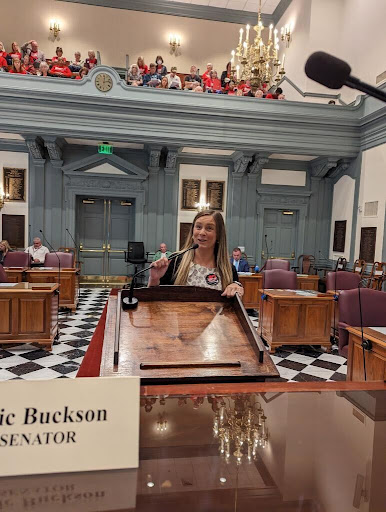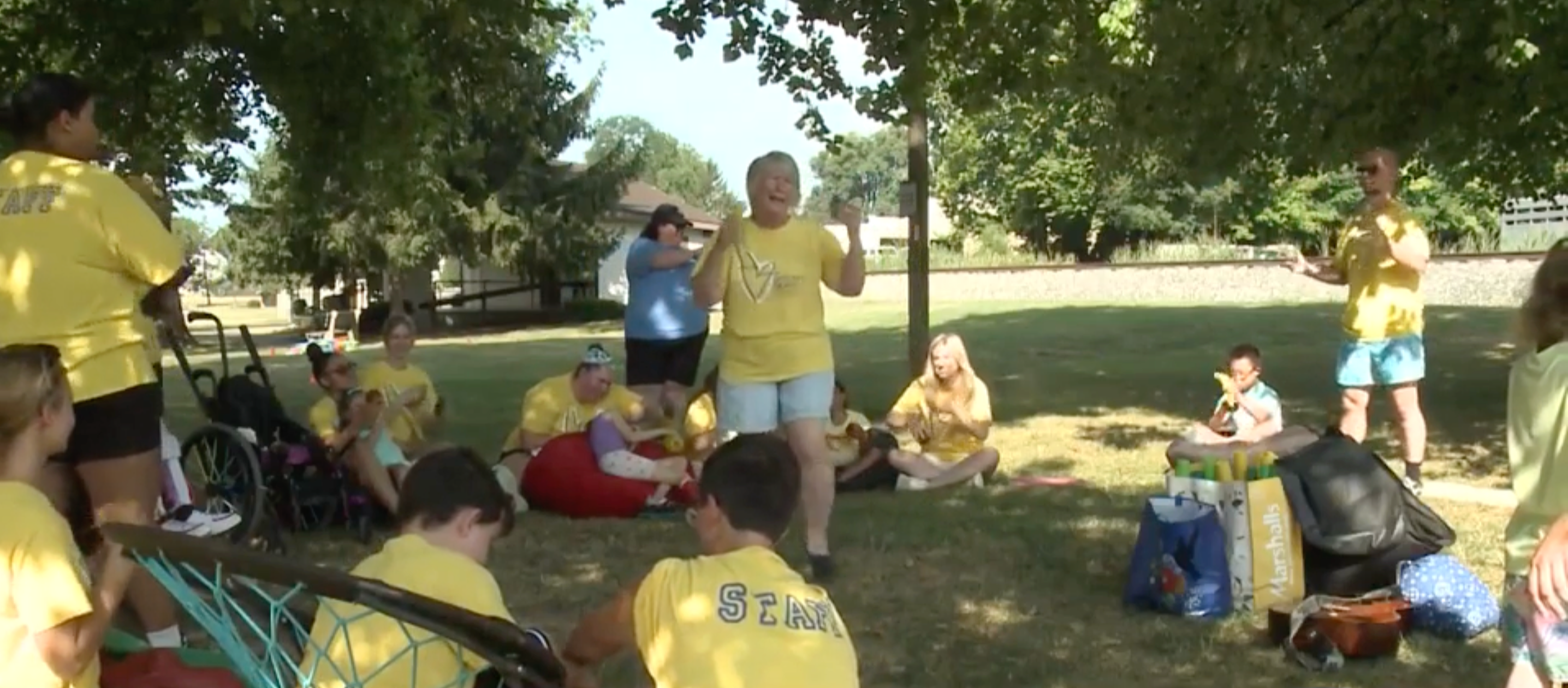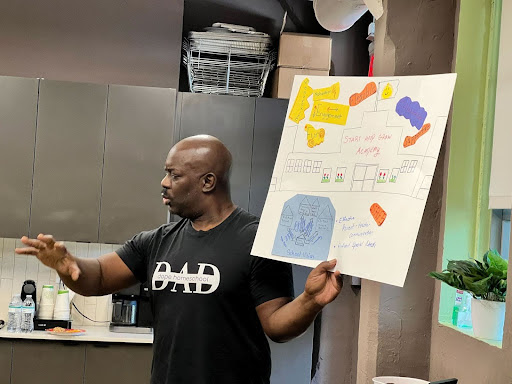Jump to: Top Tasks | From the Field | Key Resources | Moments of Resilience
It is week 162 of our new reality, and we are thinking about who is stepping forward to lead us into the educational future our kids need and deserve.
“The shortcomings of the U.S. education system are clear in terms of the inequity you end up with: the kind of jobs, salaries, mobility you’d like to see in society. Education is the great enabler of mobility, and we’re falling short on that,” Bill Gates shares in a new interview with The 74 Million. “The U.S. economy has done relatively well because there are so many factors that enter into it, including the ability of the U.S. to draw very talented people from the entire world. But I think the predictions that this is going to hurt us in the long run are true.”
You will search in vain for a similarly clear-eyed assessment from many of our current leaders including, unfortunately, the White House. Instead, what we have gotten so far from the Biden Administration is simply a more expensive status quo. Bill Gates doesn’t see that changing.
SUBSCRIBE
“I’d say that, both under Bush and Obama, there was a real effort at the federal level to drive change in education,” Gates asserts in the interview. “For better or for worse, the amount of experimentation and top-down system reform that’s going to come from the federal government after the Obama period will be very modest … The action has moved, you could say, to the state, district or classroom level.”
By necessity, a 50-state movement grounded in bottom-up innovations and local advocacy is the future of education reform in America. And fortunately for the nation’s students that future is bright.
Last time, we explored the challenges of expanding school choice in a world of financial constraints and checked in on the legislative session in Tennessee. This week we put the spotlight on a big new tutoring initiative in Louisiana and the push for a universal ESA in the Tar Heel state.
TOP TASKS
Build proof points for expanded tutoring through evidence-based partnerships between nonprofits, governments and foundations
Last week, the Louisiana Kids Matter Campaign, who we welcomed to the 50CAN network earlier this year, announced an important new partnership with Accelerate, which recently launched a fund to support local tutoring initiatives, and the Louisiana Department of Education. The program will combine a $1 million grant from Accelerate with a matching $1 million public investment from the department to pilot new approaches for expanding access to high-quality tutoring for students across Louisiana.
“I’m thrilled and thankful that Louisiana was selected for the Accelerate grant,” Kelli Bottger, Executive Director of the Louisiana Kids Matter Campaign, told us. “Our students are struggling and have yet to recover from the school closures of the pandemic. This new partnership reflects not only the impact we believe tutoring will have in the short-term, but our belief that we can help our students thrive by making tutoring a normal part of the school day for students to enhance their education moving forward.”
Kelli will work with the Louisiana Department of Education to implement the program, including the process of selecting the districts that will participate in the initial phase and evaluating partners to provide the tutoring services. “Anyone who knows me knows that quality–and the amount of student learning–is incredibly important to me,” Kelli said. “And they’ll be important as we break ground on this new partnership over the coming weeks.”
The grant is one of five Accelerate made last week, with Colorado, Delaware, Ohio and Arkansas rounding out the list.
THE TASK OF THE WEEK IS
Aim higher on ESAs
“We’re pulling out all of the stops to ensure that by the end of this session, there will be a universal ESA in North Carolina,” Marcus Brandon, executive director of CarolinaCAN told me, following the passage of SB406 out of the Senate Education Committee last Wednesday. The bill now moves to the appropriations committee where, upon passage, it will move into the budget for a full floor vote.
SB406, along with the House companion bill, HB 823, transform North Carolina’s current education scholarships into universal ESAs, with 100% of students in the state having access to the program. The amount each family will receive will be based on their household income, with the grants increasing to $7,600 for students whose families are living at 210% or below of the federal poverty level.
Marcus attributes this potential to a combination of local advocacy work that has made steady progress over the past decade and the national conversation over school choice occurring in the wake of the pandemic.
“A year ago, I wasn’t as optimistic that we would make this degree of progress this quickly, but the conversation has changed in North Carolina, just like it has in many states around the country. Families are ready for something different and we’re working hard to deliver the big changes they want,” he said.
THE TASK OF THE WEEK IS
FROM THE FIELD
Parents in Denver, Colorado, many of them grassroots advocates supported by TEN, rallied outside a Board of Education meeting demanding the resignation of the school board for failing to keep schools safe. “The board is making decisions without us,” parent advocate Claudia Carillo told Boardhawk. “It’s like they’re setting us up to fail.”
Meanwhile, GeorgiaCAN’s parent advocates were also hard at work in Columbus, Georgia, where they protested a change in school start times that would reduce instructional time. The Muscogee County School District postponed the vote until mid-May as a result of parent testimonials, promising to consider the feedback.
ConnCAN is tracking the progress of several priority bills as their legislative session continues. HB5003, their student-centered funding bill, passed unanimously out of the education committee last month and received a $150 million line-item in the budget. The team continues to push for more education funding, including at a press conference alongside the Connecticut Council for Municipalities that was held last week and a rally this Thursday. Additionally, SB1199, a bill that aims to increase educator diversity through a $12 million investment in an educator diversity scholarship program, passed out of appropriations with a bipartisan vote. That bill now moves to a vote in the House, along with the English Language Learners Bill of Rights legislation the team has championed throughout the session.
Following passage and signing of their science of reading bill earlier this year, NewMexicoKidsCAN launched the Literacy Action Center as a resource tool for parents to inform them about the scale of the literacy crisis and to provide solutions and a way to make their voices heard.
And finally, we’ve got two new pieces from 50CAN out this week. Derrell Bradford authored a column for the Tennessean alongside yes. every kid’s Craig Hulse calling out redlining and discriminatory zoning established by a 1957 law. Meanwhile, FutureEd and 50CAN released the latest AdvocacyLabs report on electoral advocacy, a write-up of which was featured in Education Post.
Key Resources
EdPost released a new article on the importance of finding a radical middle approach to bridge ideological divides and improve outcomes for students.
The Nevada Independent published an op-ed from Jana Wilcox Lavin who leads Opportunity 180, emphasizing the importance of teaching vocabulary and word recognition to address the reading crisis among students.
The 74 Million reported that current solutions to addressing COVID-19 learning loss are on track to fall well short of catching kids up due to their insufficient scale and scope.
Urban Institute conducted research showing that a mandatory FAFSA completion policy in Texas could significantly improve college access for students.
The National Assessment Governing Board will release the 2022 NAEP U.S. History and Civics results this Wednesday, May 3. You can register for the livestream announcement, which will start at 10:30 a.m. ET.
EdWorkingPapers released a study investigating the impacts of pandemic-era school closures on student attendance, course grades, and grade retention. They found that the most vulnerable groups were the hardest hit.
AEI released a report on how Florida is taking advantage of the flexibility of the Every Student Succeeds Act to move to a three-times-a-year system of standardized tests with the goal of providing more timely information for teachers and parents.
Moment of Resilience

Last week, DelawareCAN Executive Director Britney Mumford returned to the statehouse in Dover for a Senate Education Committee meeting on her first day back from maternity leave. All of us at 50CAN send congratulations for the birth of her son, Roman, and the Mumfords’ growing family. “The work feels even more important and urgent now,” Britney told us. “We have to deliver for Roman and every other child in this nation.”







